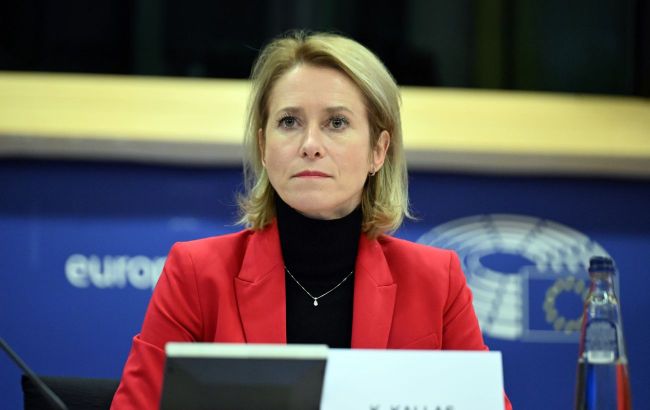EU high diplomat suggests all frozen Russian assets should be used to help Ukraine
 Photo: Kaja Kallas (Getty Images)
Photo: Kaja Kallas (Getty Images)
Billions of Russian state funds frozen in the European Union should be used to help Ukraine, EU diplomat Kaja Kallas in an interview with The Guardian.
Kallas said that Ukraine has a legal right to demand compensation and that Russian assets held in the EU are “a tool to pressure Russia.”
The EU has already begun to seize profits from Russian assets but has refrained from confiscating the entire amount (€210 billion in the union) because of doubts about the legality of such a move. The EU holds more than two-thirds of Russia's $300 billion in sovereign assets frozen by its Western allies after the full-scale invasion of Ukraine.
Kallas said that despite the “sensitivities…we will get there one day.”
She suggested that Russian funds would help pay the bill for “all the damage that Russia has caused to Ukraine.”
“Better to have a small bird in your hand than a big bird on the roof,” she said. “So we have the small bird in our hand [the frozen assets] and this is the tool to also pressure Russia.”
Helping Ukraine
Kallas said that Europe needs to increase its aid to Ukraine if the US stops funding it. She added that financial support for Ukraine “is not charity,” but is in the interests of Europe and the United States.
“If they [the US] reduce the aid, then we need to continue supporting Ukraine, because I’m worried about what happens if Russia wins. I think we will have more wars, bigger wars,” she said.
Helping Ukraine was an “investment” in “our own security” and global security, she said, citing the involvement of North Korean soldiers in Ukraine and Chinese military exercises in the South China Sea. “China is also learning from what Russia does.”
Putin's friends in EU
When asked about Vladimir Putin's recent phone calls with Hungarian Prime Minister Viktor Orbán on Wednesday and German Chancellor Olaf Scholz last month, she replied: “They [Orbán and Scholz] are doing this for domestic purposes; so I wouldn’t do it, but this is not for me to criticise.”
She said that the foreign ministers meeting on Monday will discuss whether there is “any added value” from such diplomacy.
The ministers will assess “why some members are doing this, what they want to achieve by this and is there any added value,” Kallas said, adding: “Putin really wants to humiliate Europe. That is what we have to keep in mind all the time.”
According to her, Russia is betting that it will “outlasting” its Western allies, but the war over Ukraine is still winnable.
“What we saw in Syria [is] they are not able to keep up that fight,” she said, referring to Moscow's inability to continue supporting its longtime ally, Syrian dictator Bashar al-Assad. Russia was "somewhat humiliated" in Syria, while ”their thoughts were elsewhere.”
In June, the leaders of the Group of Seven countries agreed to provide Kyiv with a $50 billion loan, partially financed by interest earned on Russian assets confiscated after the full-scale invasion in February 2022. Ukraine will not return these funds until it receives reparations from Moscow.
It is planned to receive $20 billion from the US, $20 billion from the EU, $3 billion from the UK, $3.7 billion from Canada, and $3 billion from Japan.

